Taika Waititi: Between comedy and tragedy
Today we will examine the path as well as the directorial style of Taika Waititi. And in the end, we will try to answer the question "what makes Taika Waititi one of the most versatile filmmakers of our time".

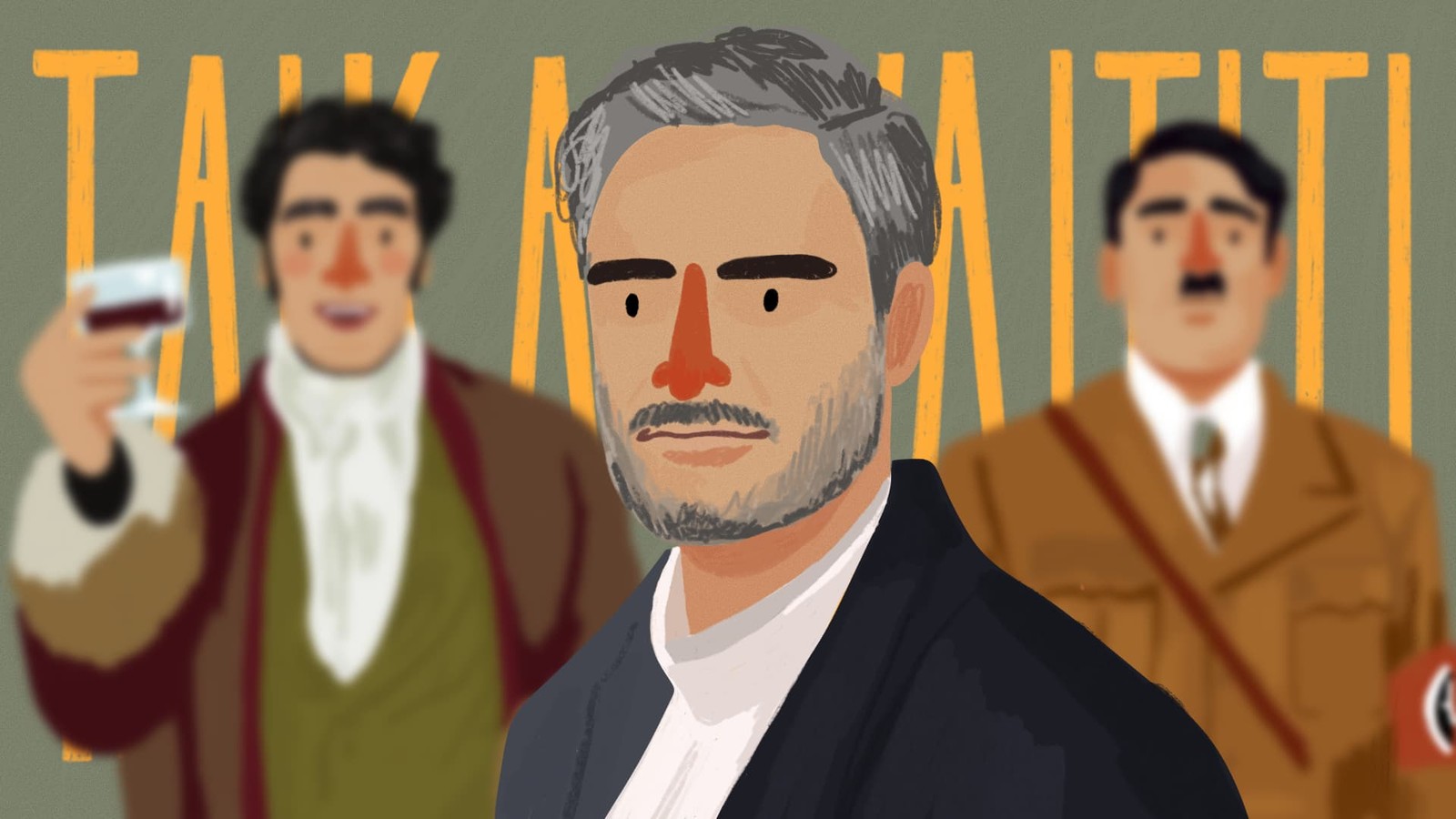
Hi. Today we will talk about a young and eccentric director from New Zealand who has managed to conquer Hollywood. Filmustage will tell you about the creative path as well as the directorial style of Taika Waititi. And in the end, we will try to answer the question "what makes Taika Waititi one of the most versatile filmmakers of our time".
Disclaimer: our blog has no academic purpose behind it, because we are viewers just like you. Filmustage does not aim to educate, but to gather a close-knit film community around us. We can be wrong about certain statements - and that is fine. We are open to discussion and criticism. The main thing is to love cinema and talk about it.
Before we continue, we want to remind you that here we promote the love of art and try to inspire you to take your camera and make a short film. Leave the boring pre-production routine to the Filmustage - automatic script breakdown - and focus on your creativity!
Also after a long time of hard work we are happy to announce the beta-testing of the new Custom categories feature in the Filmustage software. Be one of the first to test the new functionality - click here for more detailed information.
Art by @nadi_bulochka
Youth and the beginning of a journey
At 44, Taika Waititi has gone on to produce some highly acclaimed movies, worked on two major film franchises (Marvel and Star Wars) and received an Oscar. It's been a busy career, hasn't it? Let's trace the director's path from the very beginning.
The future director was born in the small village of Raukokore in New Zealand, but grew up in Wellington. When he was five, his parents separated, leaving him with his mother. Initially he used his mother's surname (Cohen) in his works, but after the success of his first short film in which he signed with his father's surname (Waititi), he decided to continue using "Taika Waititi".
At Queen Victoria University in Wellington, Taika Waititi studied theatre acting, which was his main professional interest. His envious charisma and artistry allowed him to create a successful comedy troupe, "So You're a Man", which consisted of five drama friends. Dressed in '50s style and using black humour, the group nevertheless proved relatively successful and even managed to perform in several cities in New Zealand and Australia.

Later the initiative stalled and most of the friends moved on to other projects. However, Taika Waititi and his friend Jemaine Clement decided not to stop and formed their own comedy duo - "The Humourbeasts". It was already in 1999 when the couple received their first major success - the Billy T Award, one of the most prestigious comedy awards in New Zealand. In this way, Taika Waititi has since his youth developed his own primarily comedic language, which will form the basis for his most moving and melancholic comedies.
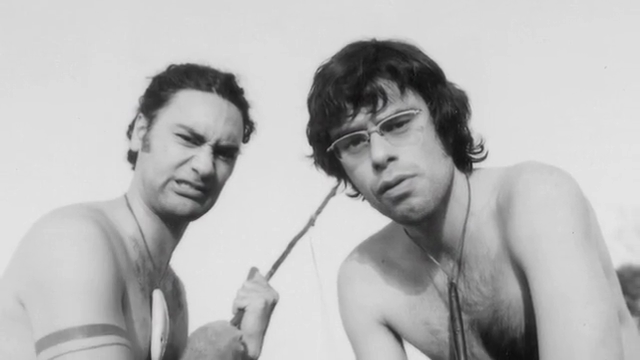
First steps in the cinema
Already during his college days, Taika Waititi was acting in low-budget films where he mostly played comedic roles. A triumph, however, was his directorial debut with "Two Cars, One Night" which was noticed by the Academy and nominated for the Best Short Film in 2005.
By that point the young director was already 30 years old, but he had only had a few short films under his belt, which you can find on the director's fan site (click here). So the dizzying success of "Two Cars, One Night" might have been a head-scratcher, but at the Oscars, Taika Waititi... fell asleep! Or rather, he expertly pretended to be asleep. The camera caught the sleeping nominee just in the moment when the presenters were calling the contestants. However, this is better to be seen.
This amusing story is telling in many ways: Taika Waititi does not strive for awards, but shoots as he pleases and what he likes. For him, the awards ceremony is just an ability to create another joke.
His first feature film, "Eagle vs Shark", received mixed reviews but was released in limited distribution in the US in 2007. "Boy" followed in 2010 to rave reviews from audiences around the world. Taika Waititi's presented "Boy" at the Sundance Film Festival in January 2010 and went on to win the Grand Jury Prize.
''In its third act, this funny, bittersweet, tonally assured coming-of-age story grows unexpectedly poignant as Rolleston comes to realize he doesn't need a super-cool buddy or co-conspirator in his misadventures. He needs a father, and Waititi's stunted man-child is fatally unsuited and unqualified for that role'', - The A.V. Club "Boy" (2010) review by Nathan Rabin
Recognition
It can't be overlooked that Taika Waititi was already on the radar after 2010, as his work opened New Zealand cinema to the world. However, both "Eagle vs Shark" and "Boy" are more indie films, accessible only to a small stratum of viewers as well as film critics. The New Zealand filmmaker gained a truly massive following with the release of "What We Do in the Shadows" in 2014.
Taika Waititi co-wrote the script and co-directed with old friend Jemaine Clement. As a result, he made the most of his talents. Waititi and Clement took one of the short films they made as students and based it on a satirical mockumentary about vampire life in modern times. The film became a phenomenon and deservedly earned itself enormous viewer acclaim. At its core, "What We Do in the Shadows" is praised for its grey and humorous take on the hackneyed genre of vampire cinema.
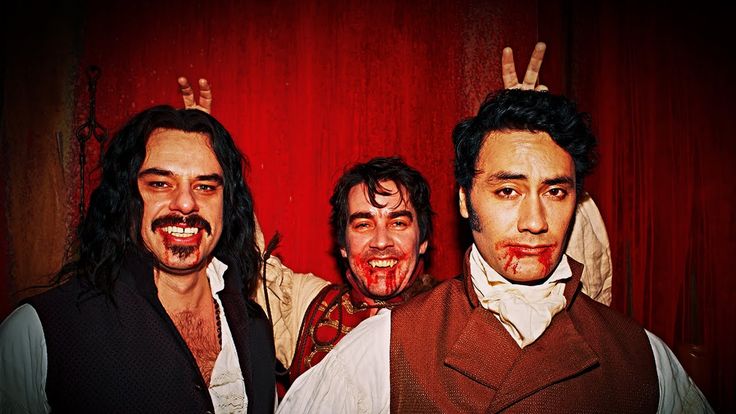
In the big cinema, Taika Waititi was able to bring his comic talent to full fruition: Waititi and Clement not only directed the film, but also played two leading roles: Viago & Vladislav. To be honest, it's very rare that films where a director takes such a big part in a project become successful. However, in the case of Taika Waititi, the opposite is true: he is a multi-talented director and strives to take as much part in his projects as possible. Most importantly, his films have a directorial sincerity and dedication.
And then there was the TV adaptation of "What We Do in the Shadows", Waititi's fourth film "Hunt for the Wilderpeople", and a fruitful collaboration with Disney. We have thus walked through the main stages of Waititi's career, from his beginnings as a director to his eventual recognition by the international community. In the next section, we will concentrate on how Taika Waititi makes his films, and try to formulate his directorial handwriting.
Director's style
In Taika Waititi's directorial style, it is difficult to identify certain techniques or methods that truly distinguish him from other directors. For each film, the director chooses a set of univocal techniques that are difficult to pin down with any certainty to Taika Waititi. Nevertheless, Waititi broadcasts a very understandable approach in his films that distinguishes his work from many others. This approach can be concluded with the phrase ''tragic comedy''.
The director surprisingly combines the serious with the funny. For instance, at the beginning of "Jojo Rabbit" we see a young boy talking to an imaginary friend, who turns out to be Hitler. There is no doubt that the viewer is filled with a sense of condemnation, misunderstanding and sympathy for the boy. Hitler's propaganda has so darkened people's heads that even the youngest boys imagine Hitler to be an imaginary friend. But the whole situation becomes a comedy of the absurd, as Jojo becomes increasingly fanatical in his shouting of "Hail Hitler".
In this way, Waititi not only defuses the situation, but makes the viewer aware of the absurdity and impenetrability of the system. "Jojo Rabbit" is one of the most radical examples of the search for the funny in the tragic.
A creative balance, however, Waititi was able to achieve already during his period of indie creativity. Firstly, Waititi creates colourful and detailed worlds in which the decorations, costumes and habits of the characters are vivid and at times deliberate. This has more to do with the director's philosophy of life:
"I want to explore the painful comedy of growing up and interpreting the world. I believe that despite our faults and inadequacies, through all pain and heartache, there is still room to laugh", - Taika Waititi
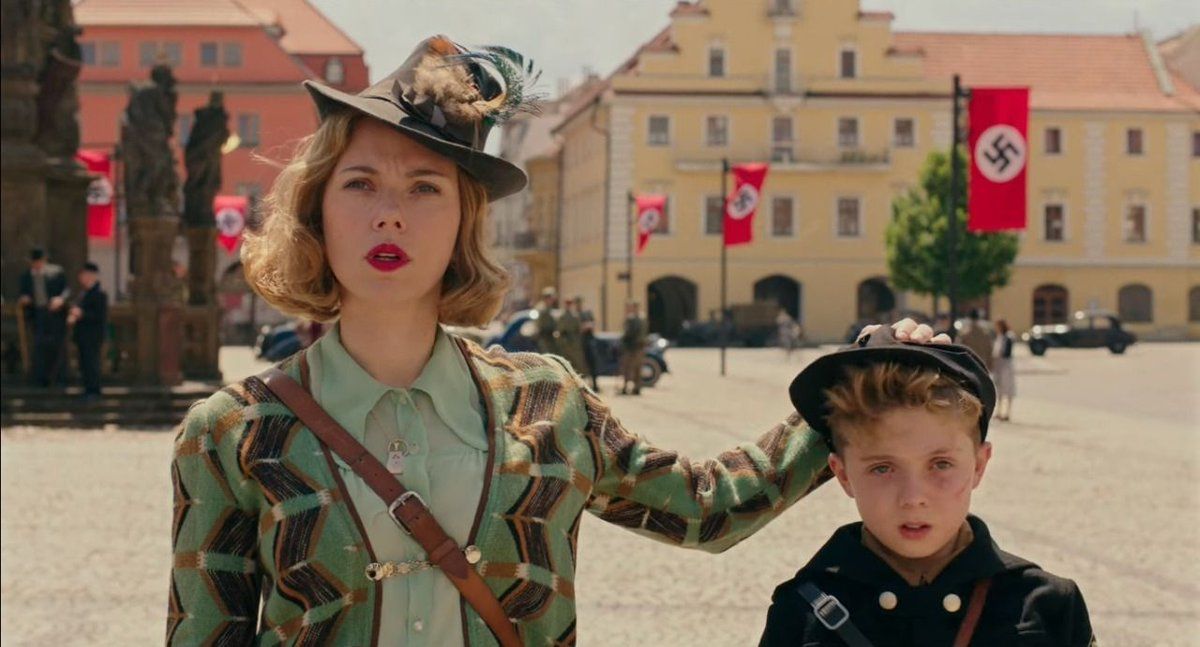
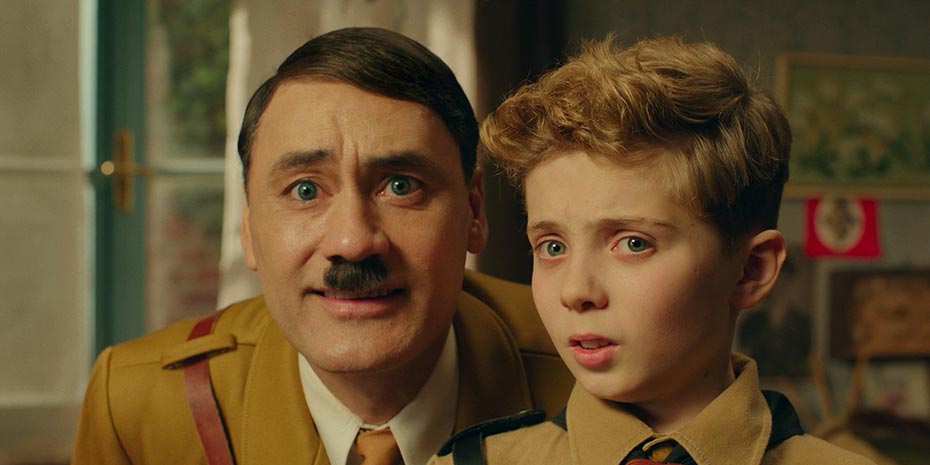
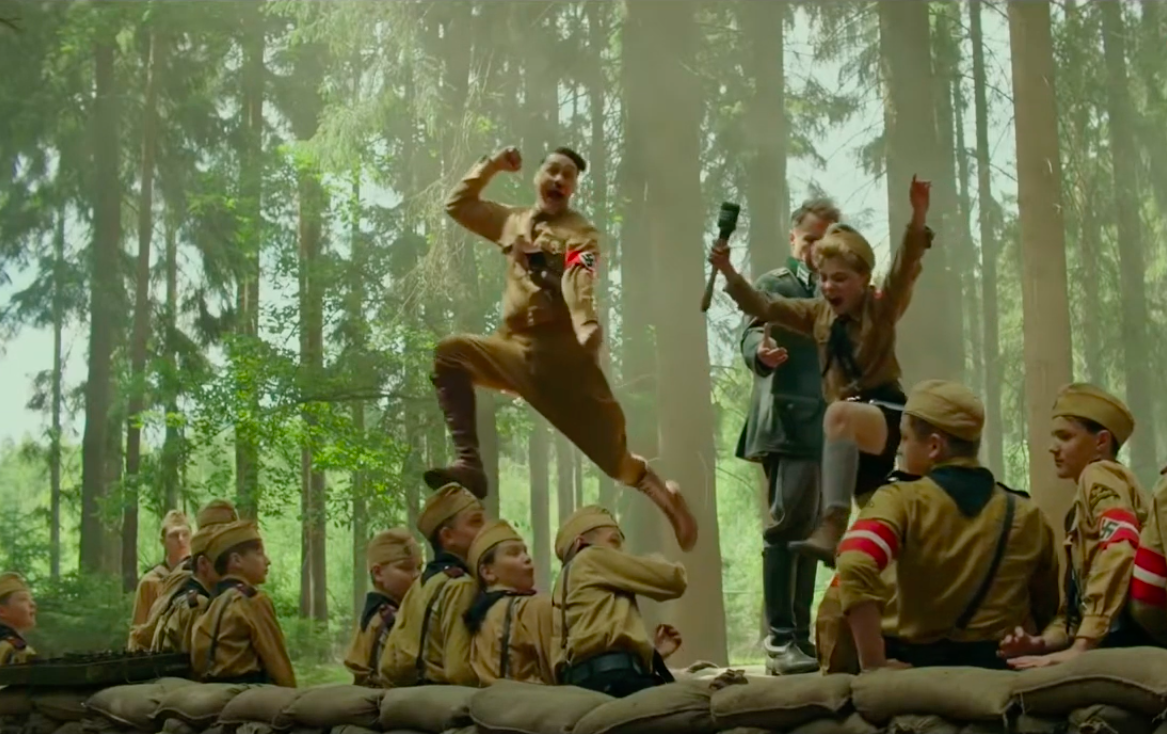
Waititi is fully aware that reality is just as colourful as it is bleak, which is why he places the characters in his films in difficult circumstances, and paints the world around them in incredibly colourful colours. Just look at "Jojo Rabbit's" depiction of Nazi Germany! The hyperbalised, scripted depiction of the Third Reich is so at odds with the image that the combination makes for a comedy that makes you want to cry.
If you think back to the terrific film "Eagle vs Shark", you can see a similar pattern. A tragic story of loneliness, rejection and failure is revealed through the relationship of the main characters. But most importantly, Waititi shows interesting and ambiguous characters already in this film. Jarrod seems to be a brute who treats everyone around him in a consumerist manner. He has only himself to blame for his loneliness. He is a villain. However, you only want to pity him, not hate him. Lily, on the other hand, does not like or even fear people. She considers herself an outcast. They are both frankly unhappy and simply do not know how to deal with it.
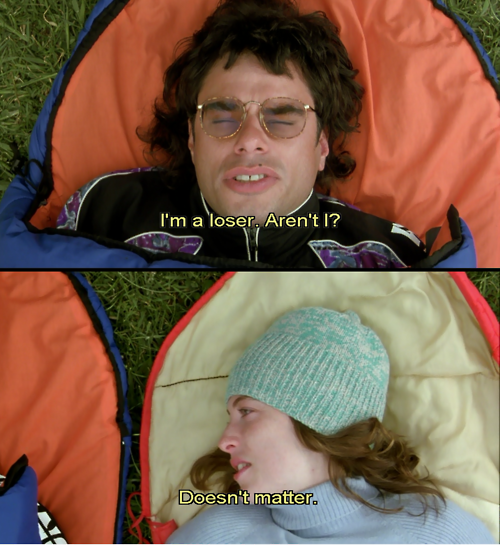
Moreover, often in important scenes, the characters appear in ridiculous outfits. Or get distracted by a completely insignificant topic right in the middle of frank dialogue. Taika Waititi uses these interruptions and images to find the funny even in the most tragic.
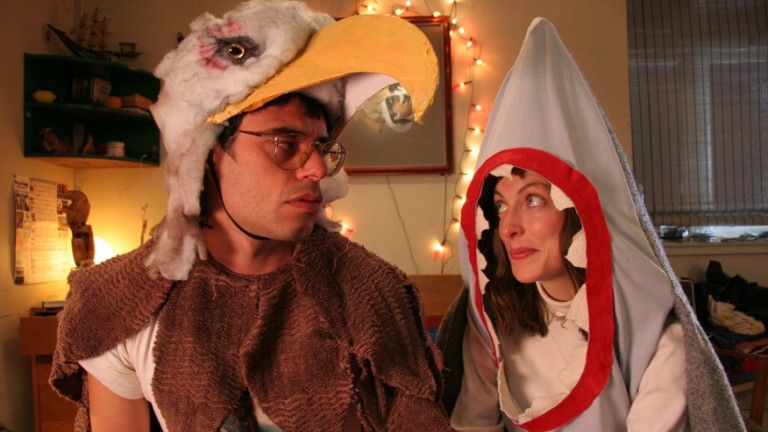
Another crucial aspect of Taika Waititi's directorial approach is the theme of growing up. This trope can be traced in absolutely every picture by the director. Even the blockbuster "Thor: Ragnarok" is dedicated to Thor's peculiar farewell to his father Odin.
However, 2010 saw the release of what is probably the director's most personal film. Here, the protagonist is a child, referred to simply as Boy. After his mother's death, he lives with his grandmother, brother and relatives. Boy's father Alamein is in jail, but the young hero considers him his idol, who is even cooler than Michael Jackson.
Taika Waititi has played Alamein himself, as if wanting to work through his own personal trauma of his father leaving the family when he was a child. Waititi confronts the world of fantasy (i.e. the representation of children) with the harshness of reality (the father), which causes a surprisingly balanced level of drama. Longing does not overpower joy. However, neither can joy outweigh longing. It's all so intertwined that the film feels true to itself. "Boy" does not deceive the spectator and does not show an overly synthetic story - "Boy" shows the truth of life as it is.
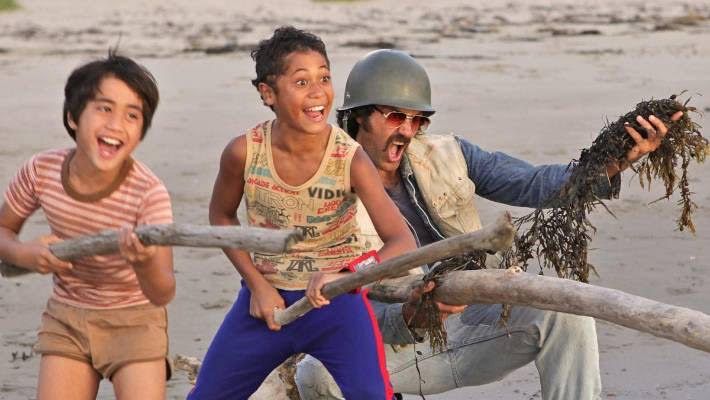
Taika Waititi surprises with his sincerity. His films are neither tragedies nor comedies, but something more. You could almost call it life: joyful and sad, hard and easy, vivid and dark. This director does not focus on the tragic or the comic, but on the boundary between the two. Waititi is not in the habit of speaking for others, so he lets his characters search freely and independently - and, through pain, mistakes, disappointments, his characters are bound to find their way to the light. Look at Jarrod and Lily from "Eagle vs Shark": in the finale they are fully aware of the reasons for their loneliness and unhappiness. Yeah, Lily and Jarrod have walked a path full of heartache, but that's what happens in life if you want to be human. We think this is the main philosophy behind Taika Waititi's making of the film. Of course, you can see echoes of Tarantino's dialogue as well as Wes Anderson's atmosphere in his style. Don't let these impressions fool you, however. In fact, Waititi's cinematography is such an interesting mix from which original and simply good films are born. Also don't be deterred by the big titles in the portfolio. We encourage you to look deeper than that and then, trust us, you won't be disappointed.
From Breakdown to Budget in Clicks
Save time, cut costs, and let Filmustage’s AI handle the heavy lifting — all in a single day.